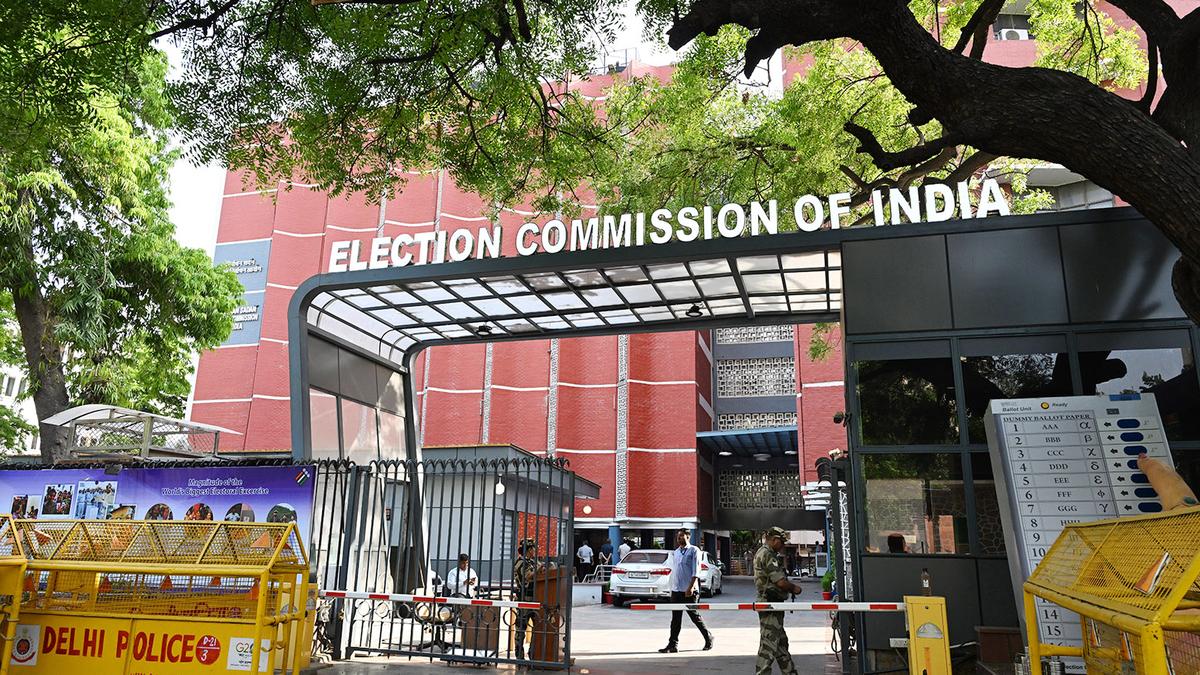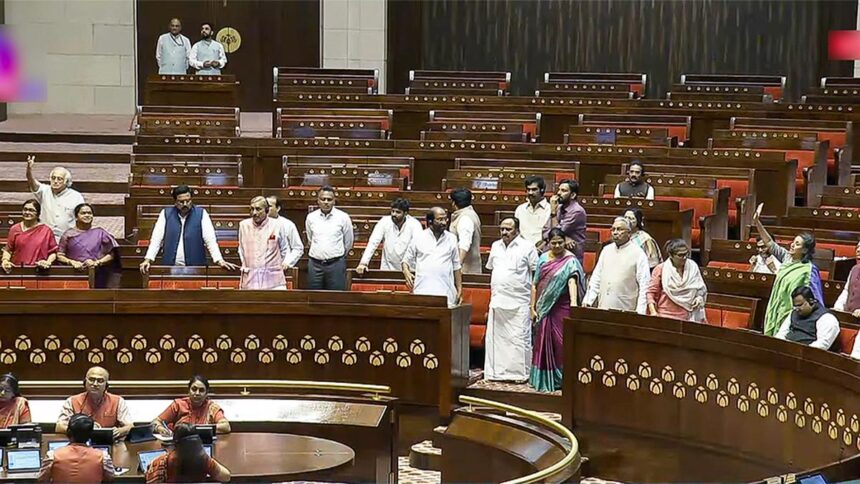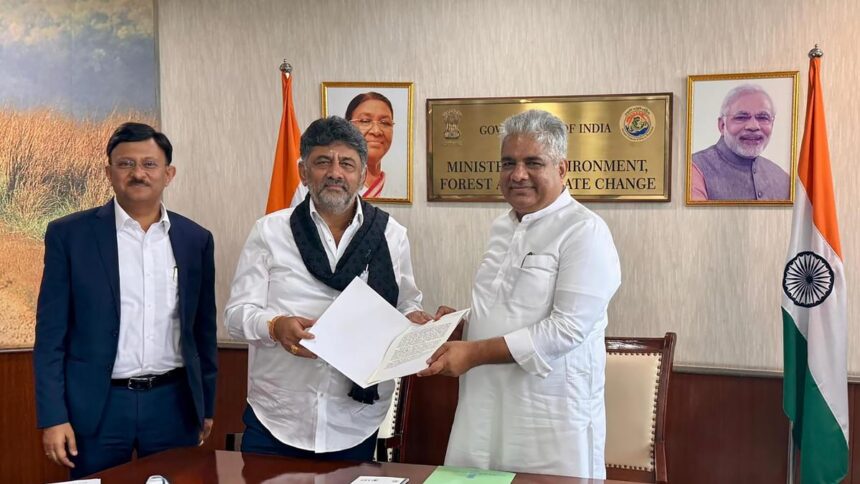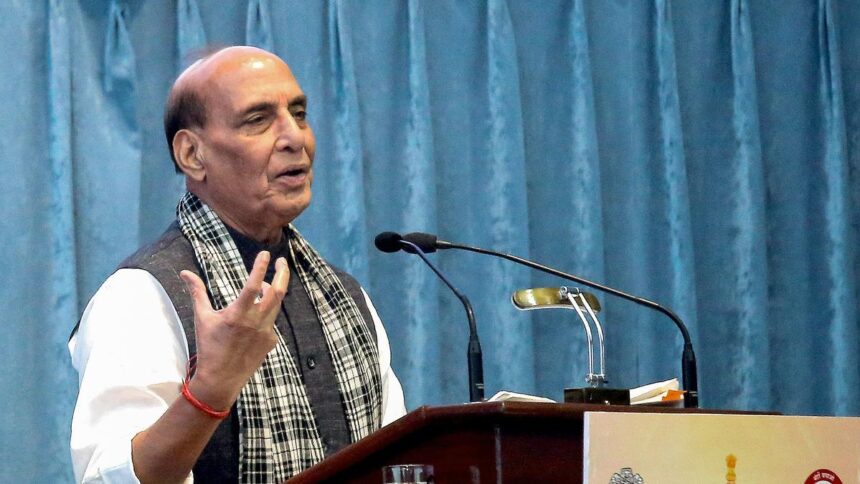
The Election Commission of India. File
| Photo Credit: The Hindu
On June 24, the Election Commission of India (ECI) announced the commencement of the Special Intensive Revision (SIR) of electoral rolls of Bihar, entailing the verification of nearly 8 crore voters. This drastic step was taken in secrecy, with no prior public information or consultation. The ECI also declared that the SIR exercise would be extended to the entire country. Lack of transparency has continued to characterise the exercise on the ground, raising concerns about the credibility of the process.
Several concerns
The names of 65 lakh voters have been deleted in Bihar’s draft voter list published after the first phase of the SIR — an average deletion of about 27,000 voters per constituency. In a State where most seats are won by a slender margin, this number exceeds the winning margin in two-thirds of seats in the 2020 elections. This scale of deletions could potentially swing the electoral outcome in most Assembly constituencies.
As per the ECI, 22 lakh voters were found to be dead, 36 lakh had permanently shifted from Bihar or were not found, and 7 lakh were enrolled in multiple places. If names are being deleted on this scale, they must be made public to enable meaningful oversight and safeguard electoral integrity. Unfortunately, the ECI has failed to provide the full list of deleted names along with the reasons. In its press release, the ECI has claimed that booth-level lists of deletions have been shared with political parties, but these do not indicate the reasons for deletion. This resistance to disclosure makes it impossible for parties and people to verify whether the deletions are justified or if eligible voters have been disenfranchised. Lack of relevant granular data is a cause for alarm in a context where deletion of names — often disproportionately affecting marginalised communities — can directly impact electoral outcomes and erode trust in the system.
Undertaking an SIR across the country is not a routine administrative decision. People have a right to know what triggered the ECI to suddenly undertake this mammoth exercise involving nearly 100 crore voters of the country. Was there evidence of large-scale discrepancies or grave inaccuracies in the electoral rolls that could undermine the integrity of elections? What were the factors that prompted the ECI to begin the country-wide SIR from poll-bound Bihar in such a tearing hurry, during monsoons when many parts are flooded?
In its affidavit submitted to the Supreme Court, the ECI stated that several parties had raised concerns about inaccuracies in voter lists and upon an independent appraisal of the matter, the Commission was of the view that a nation-wide SIR was needed. Strangely, however, the 800-page ECI affidavit does not contain the “independent appraisal” on the basis of which the Commission is set to ask every voter in the country to prove their eligibility to vote. In a democracy, citizens have the right to know not just the decisions taken by public authorities, but also why a decision impacting them was made. By not sharing the methodology and findings of the independent appraisal, the ECI is violating people’s fundamental right to information. Without evidence, the rationale for the SIR is unclear, raising the spectre of arbitrariness and possible pressures influencing the decision to undertake the exercise.
Although the ECI has wide latitude in conducting roll revisions for ensuring accurate voter lists, its decision to exempt only those registered in the 2003 Bihar electoral rolls from stringent requirements of producing proof of citizenship has triggered a debate. The ECI’s rationale is that the last intensive revision in the State was carried out in 2003 and all those who made it to the list would have satisfied the eligibility criteria, including that of being an Indian citizen. A natural question that arises is, did the ECI ask voters to produce documents in 2003 to prove citizenship?
Many people, including former Election Commissioners, have said that the ECI has never before asked every voter in a State to prove their citizenship though production of prescribed documents such as passports and birth certificates of self/parent(s) to ascertain place and date of birth. In fact, the ECI’s insistence on production of documents to prove citizenship has led to suspicion that the SIR is a move to bring the National Register of Citizens through the backdoor.
The ECI’s defence has been that the current exercise mirrors what was done in 2003. Unfortunately, the records which would put this controversy to rest — orders and guidelines of the intensive revision of electoral rolls carried out in 2003 in Bihar — are missing from the public domain. The relevant documents are not available on the ECI website, nor were they annexed with the affidavit filed in Court by the ECI. As per reports, when journalists explicitly asked for copies of these records, officials of the ECI claimed that they could not be traced.
The risks of opaqueness
The significance of ensuring transparency in the SIR of voter lists cannot be overstated, since failing to prove one’s citizenship could result in repercussions far graver than the mere loss of voting rights. Election officers have wide powers, including referring cases of suspected foreign nationals to competent authorities under the Citizenship Act, 1955.
Lack of transparency in the SIR process in Bihar has real and potentially grave implications for electoral democracy. Such disenfranchisement not only undermines the legitimacy of elections but also weakens faith in institutions that are meant to safeguard the democratic process.
Anjali Bhardwaj and Amrita Johri are transparency activists associated with Satark Nagrik Sangathan and the National Campaign for Peoples’ Right to Information
Published – August 11, 2025 01:29 am IST

















